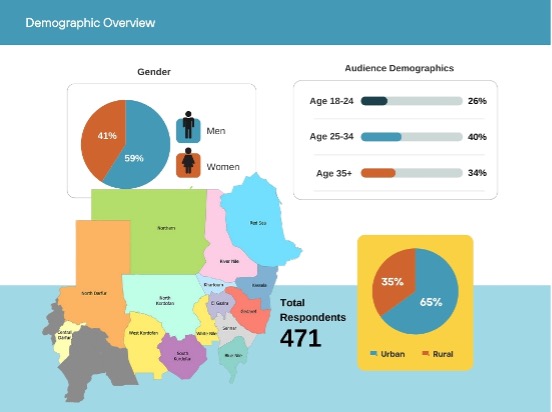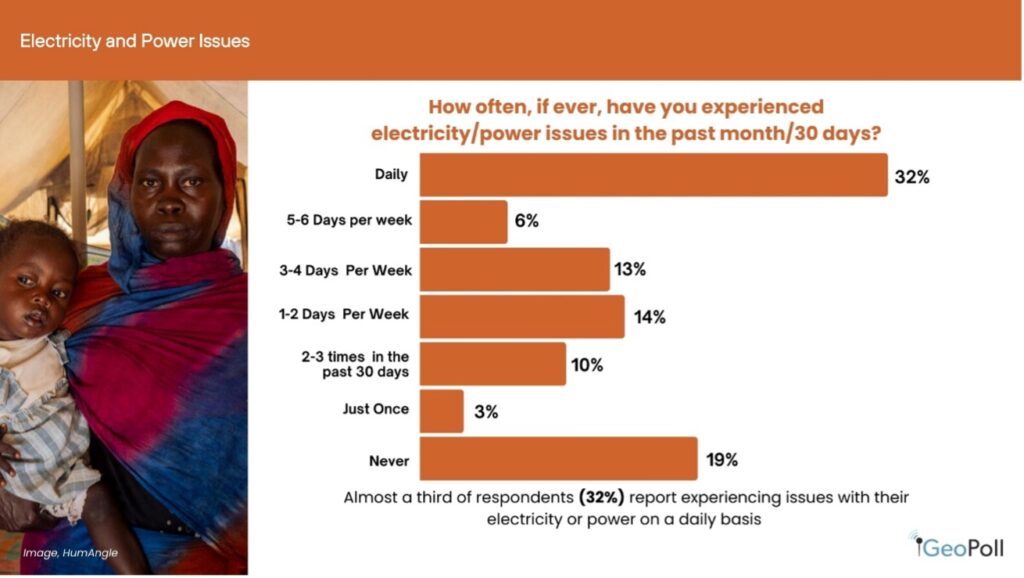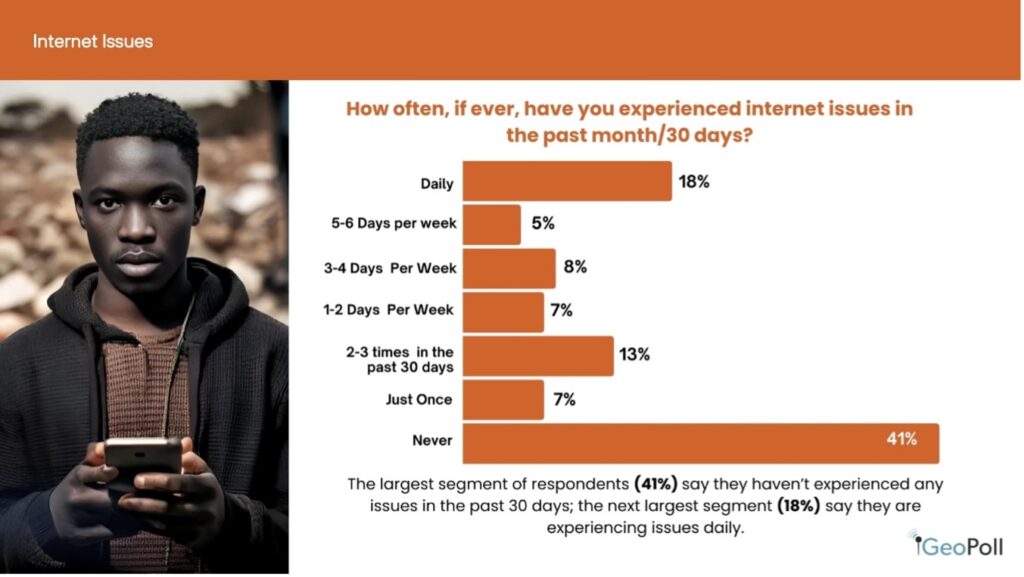The ongoing civil war in Sudan has left nearly 30 million people in desperate need of humanitarian assistance. The violence has pushed more than 14 million people from their homes and unleashed the world’s worst hunger crisis. With no end to the conflict in sight, and the need for aid escalating rapidly, GeoPoll conducted a pilot survey in Sudan in October 2024. The objective of the survey was to assess and optimize GeoPoll’s remote data collection capabilities in the country to assist in the targeting of humanitarian relief.
GeoPoll conducted the survey using its proprietary Computer Assisted Telephone Interviewing (CATI) application. Data collection occurred from 3-30 October 2024. The live call survey was offered in Sudanese Arabic, and conducted remotely from the GeoPoll call centre in Nairobi, Kenya targeting respondents living in Sudan. The total sample size was 471 respondents. The project’s sample comprised a combination of GeoPoll’s existing Sudan database (51 completes), a GeoPoll partner database (19 completes), and Random Digit Dialing (401 completes). GeoPoll uses its extensive knowledge of telephone samples to intelligently generate RDD sample that has response rates in line with those found from the GeoPoll respondent database.
Demographics
Although the study was not purely scientific as there were no strict measures to limit demographic quotas, a diverse mix of demographics was achieved.

While the survey reached respondents in 15 out of the 18 states in Sudan, intense fighting in the western region of the country, including the burning of at least 68 villages in Darfur, limited or prevented participation from those areas.
Access to Essential Services
In times of crisis, access to power and communication are critical. In our study, almost a third of respondents (32%) report experiencing issues with their electricity or power on a daily basis in the past month. Most (65%) report experiencing issues at least once or twice a week.

Communication infrastructure, including internet and phone, seems to be fairing slightly better – at least for these respondents that were able to connect on their phones to respond to our survey. Most respondents are still experiencing at least some interruptions, however.
In terms of the internet, while the largest segment of respondents (41%) say they haven’t experienced any issues in the past 30 days, the next largest segment (18%) say they are experiencing issues daily.

Mobile phones have become essential tools for communities in crisis. With mobile connectivity, civilians can stay in touch with friends and family, access up-to-date information, connect with humanitarian facilities, and much more. In our study 48% of respondents have not experienced any mobile network outages in the past 30 days, and 11% have just experienced one outage.

Keeping communication lines open as the fighting continues will play a vital role in both the targeting and distribution of humanitarian relief.
Conduct CATI Research in Sudan
GeoPoll has extensive experience conducting research in areas of conflict and crisis through remote mobile-based methodologies. In times when it is otherwise impossible to get information from people on the ground, remote data collection can play a pivotal role in capturing the sentiment and realities of vulnerable populations.
For this study, trained interviewers at the GeoPoll call centre in Nairobi, Kenya made 24,588 unique calls to residents across Sudan. The telephone sample was randomly generated and dialed via the GeoPoll CATI application. The total number of calls made yielded approximately 15,331 opt-ins to the survey for an initial response rate of 62%. Of those who opted-in, 22 were deemed ineligible due to age and/or location. Of those eligible, 14,908 dropped off at some point in the survey, resulting in a total of 401 completes from the RDD sample for a total completion rate of 1.6%.
Based on the findings from this study, we learned and implemented several tactics to optimize response rates and ensure quality when conducting CATI research in Sudan:
- Because most respondents in our study report experiencing intermittent power, internet, and mobile network outages, it is recommended to make multiple calls to each respondent (if needed) at different times of the day and days of the week.
- Although there is no significant variation in the preferred time of day for respondents to be contacted, experimenting with different call times might still help identify optimal periods for higher response rates.
- Similarly, contacting respondents at different days of the week does not appear to significantly impact response rates, thus survey efforts can be spread evenly throughout the week.
- Snowballing method should be explored as 50% of the respondents confirmed having numbers of family and friends that may be willing to participate. Out of these, 61% shared contacts.
- Implementing the survey remotely from our call centre in Nairobi ensured a safe and stable operating environment for the interviewers to make their calls.
- For calls made from within Sudan, it may be advantageous to utilize multiple offices and locations, so that if one team is disrupted, other teams can continue making calls.
To learn more about GeoPoll’s capabilities in Sudan and around the world, please contact us.

